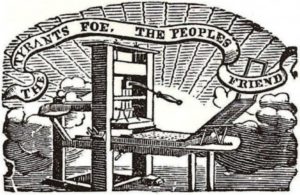For the Conversation
Local news outlets across the U.S. are struggling to bring in advertising and subscription revenue, which pays for the reporting, editing and production of their articles. It’s not a new problem, but with fewer and fewer journalism jobs as a result, a growing number of local newsrooms have found a potential solution: college journalism students.
The pandemic, set on a backdrop of political and economic tumult, further injured a local news industry weakened by decades of revenue decline, ownership consolidation and cuts to production and delivery. In rural and urban communities across the country, residents have little or no access to credible or comprehensive local news and information – they live in what are called “news deserts.”
Studies show that people who live in news deserts or other locations with little local news are less likely to be actively involved in their community or participate in local elections. They are also more likely to believe false information spread online through social media and fake or fringe websites.
Through formal and informal collaborations, college journalists are helping to serve the communities where their universities are located by making sustained contributions to local media. Indeed, an estimated 10% of state capitol reporters across the nation are students. In some states, such as Missouri, students make up a little more than half of their statehouse press corps, according to a 2022 report published by the Pew Research Center.
As a researcher who studies trends in rural community journalism and a journalism professor who teaches in a region with significant elimination of local news reporters and news coverage, we decided to study these collaborations – what we call “news-academic partnerships” – often in areas that have seen local newsrooms suffer the hardest hits, as identified in the University of North Carolina’s news desert report.
For our initial research, we sent surveys to 50 people who are involved in these collaborations, either as faculty members who manage the partnership at a

